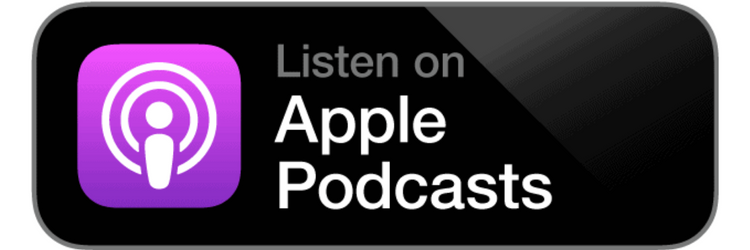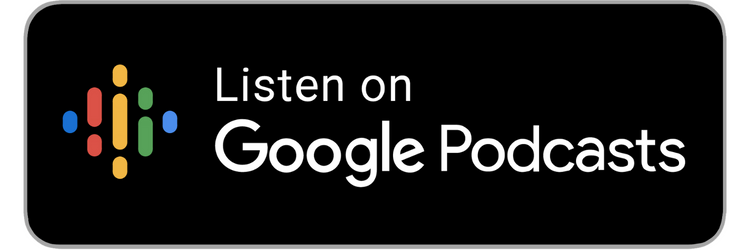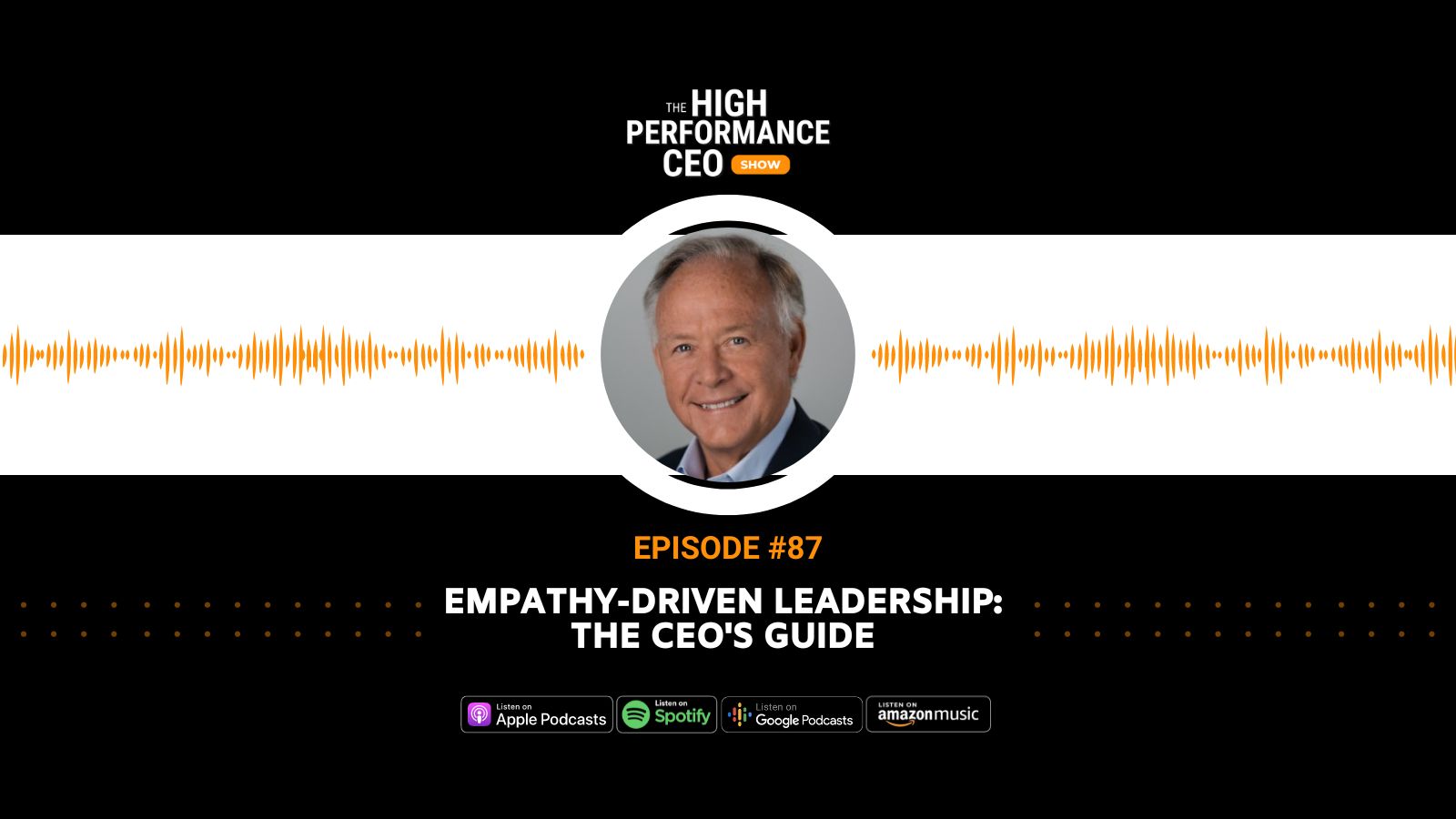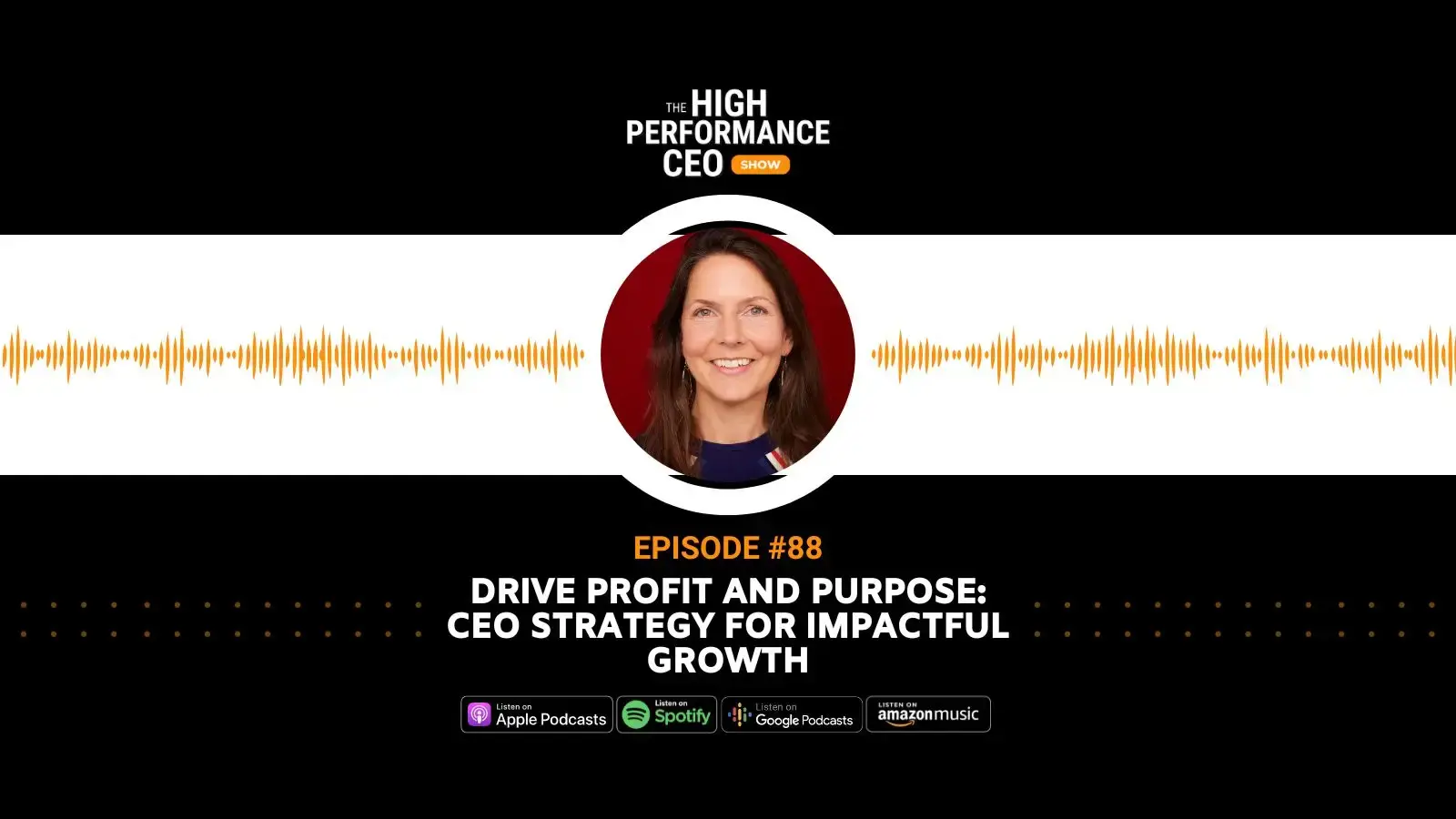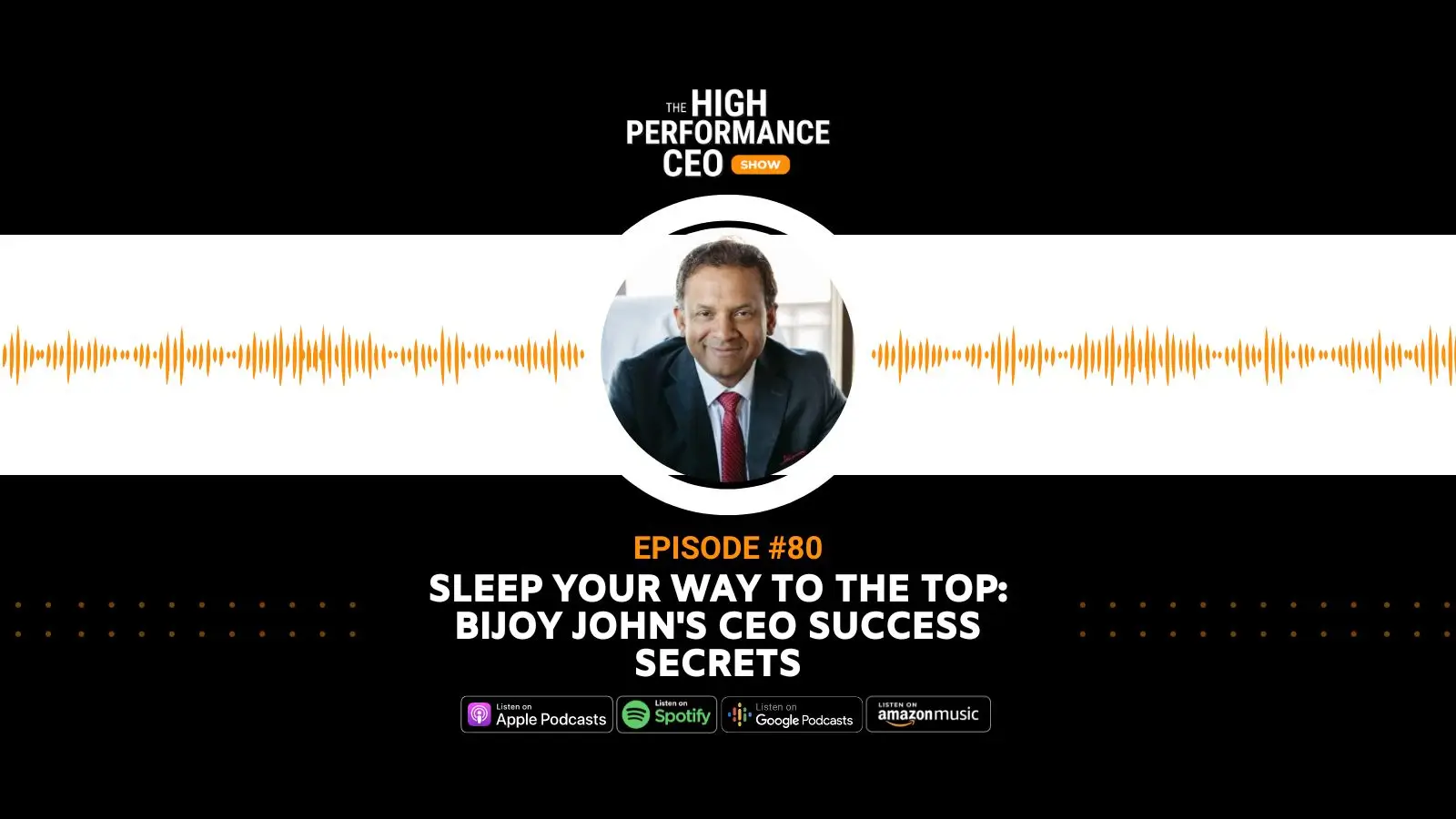15 min read
Transforming Executive Performance Through Neurofeedback
Sebastian Schieke
:
Apr 5, 2024 12:00:00 PM
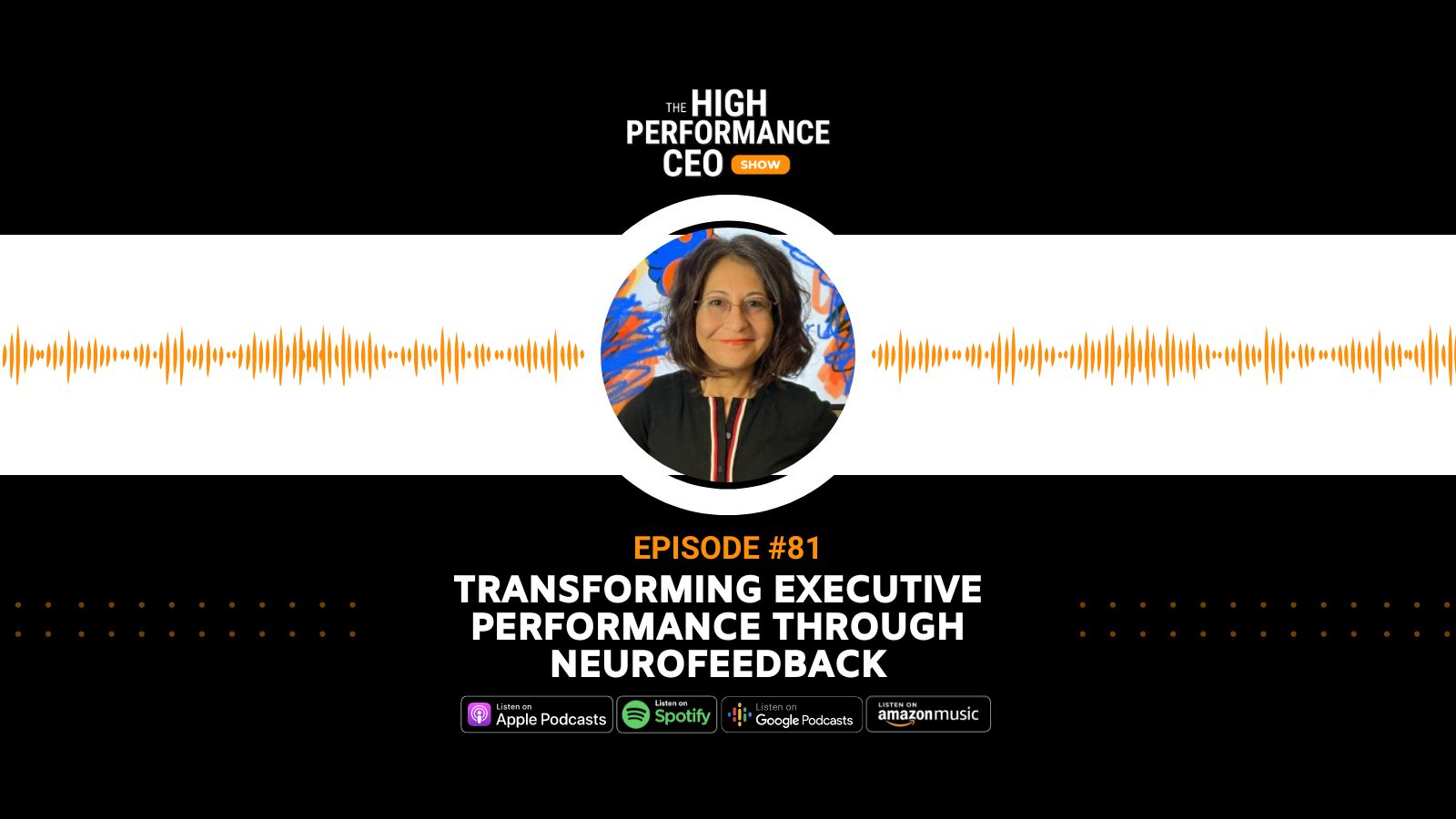
Episode Summary:
Eveline Goodman guides us through the world of neurofeedback and its powerful effects on leadership and life. Learn how to enhance your brain's performance with personalized assessments and training programs. This episode is perfect for CEOs who promote continuous learning and utilize cutting-edge neuro-skilling tech for stronger leadership skills.
About Eveline Goodman:
- Eveline Goodman, Ph.D. in Psychology and Neuroscience: Eveline has advanced degrees in psychology and neuroscience, so she understands how the brain works and its effects on leadership and performance.
- Experience in Enhancing Executive Leadership: With extensive hands-on experience, Eveline has worked closely with high-level executives worldwide, using neurofeedback and other cognitive development tools to enhance their leadership skills and decision-making abilities.
- Pioneer in Neuro-skilling Technologies: Eveline blends advanced neuro-skilling tech into executive training programs to boost cognitive functions and emotional intelligence for top-notch professionalism.
Key Takeaways:
- Enhance Decision-Making: Learn how neurofeedback can fine-tune your brain for better leadership decisions.
- Stress Management: Transform stress into a powerful tool for resilience and performance.
- Continuous Improvement: Keep your leadership skills sharp and innovative by embracing a learning mindset.
- Boost Mental Health: Invest in neurofeedback to improve your cognitive abilities and overall well-being.
- Customized Leadership Growth: Discover the benefits of personalized training programs tailored to your unique leadership challenges.
- Future-Proof Your Skills: Stay ahead with the latest cognitive and emotional development technologies for leaders.
Why It's Important for CEOs Like You
This episode breaks down the science behind neurofeedback and shows how it boosts cognitive functions, stress management, and overall well-being. Eveline Goodman shares her expertise in using cutting-edge neuro-skilling technology to empower CEOs and leaders. Get ready to revamp your leadership style, enhance performance, and stay ahead in the business world with personalized assessments and training programs.
What CEOs Can Start Doing
- Schedule a Neurofeedback Assessment: Book your personalized evaluation with a neurofeedback expert to identify your unique cognitive strengths and areas for improvement.
- Try a Neurofeedback Session: Experience the benefits of neurofeedback first-hand by trying out a session designed to enhance your leadership skills.
- Incorporate Neuro-skilling Into Your Routine: Integrate neurofeedback exercises into your daily leadership practices to improve decision-making and stress management.
- Join Our Community: Connect with other leaders exploring neurofeedback by joining our exclusive online forum for discussions, tips, and support.
- Watch and Share: Don’t forget to watch the full episode of "The CEO's Edge" and share it with fellow executives and peers interested in transforming their leadership through neurofeedback.
Conclusion
This episode emphasizes the value of using neuro-skilling tech to enhance decision-making and stress handling and promote continuous growth. CEOs and executives can tackle leadership hurdles more effectively by incorporating personalized neurofeedback assessments into daily routines. This fresh approach promises a competitive edge in the business world and a positive shift in personal well-being and leadership skills.
Chapters
Introduction to Eveline and Neurofeedback (00:00 - 01:04)
The introduction of Eveline Goodman and the concept of neurofeedback highlights its significance in cognitive ability enhancement.
Applications of Neurofeedback (01:04 - 04:06)
Discusses practical neurofeedback applications for executives, including stress management and enhancing presentation skills.
The Science Behind Neurofeedback (04:06 - 07:10)
Eveline explains the scientific basis of neurofeedback, including brain balance between the left and right hemispheres.
Practical Session and Benefits (07:10 - 12:44)
Details on how a neurofeedback session works benefits for cognitive function, and personal testimonials.
Future of Neurofeedback and Cognitive Training (12:44 - 23:37)
Eveline shares her vision for the future of neurofeedback in organizations and the potential for widespread application.
Read the full transcript here
-
Transcript
Sebastian Schieke (00:00.181)
nation. Eveli Gutman, welcome to the show.
eveline (00:03.406)
Thank you very much, Sebastian. I'm happy to be here.
Sebastian Schieke (00:07.317)
Yeah, it's a pleasure to meet you now virtually again. We had a couple of onsite meetings in Berlin and a couple of workshops. So now we dive right into the interview and we talk about neurofeedback. And I mean, feedback is a very important topic. I mean, I was at feedback is the breakfast for champions, but what does it mean in terms of brains and in terms of our
eveline (00:20.782)
you
eveline (00:35.342)
Well, you know, it just goes without saying. It's a feedback that your brain gives to you, to the brain owner, so that he or she can see how my brain is reacting in certain situations. Right? So it's a game -changing experience for those who try and who use this regularly, namely, then they know...
Sebastian Schieke (00:36.533)
cognitive ability, what is new feedback?
eveline (01:04.014)
Okay, when I'm unplugged in a meeting situation, but we plug them in for those situations that raise their high beta brain waves, in the stress brain waves. So, I mean, we train executives here who have got really stage fright problems, right? So that, you know, they say, well, you know, 200 people around the world is taking a look at me right now online. And it's an internationally operating company, for instance. And then this is, well, I mean, I know.
Sebastian Schieke (01:11.317)
Mm -hmm. Yeah.
Sebastian Schieke (01:25.621)
you
eveline (01:32.91)
top managers who regularly take a shot and beta blocker before such events. A shot of something like a whiskey or a water or a raki or a ouzo.
Sebastian Schieke (01:38.613)
What do you mean by a shot? A shot of liquid.
Sebastian Schieke (01:44.277)
Yeah, yeah. You know what always gets me is when I travel and for example, I take an early flight and walk around the airport and there are people in business suits sitting there drinking beer at six or seven in the morning, you know, I said, oh my God.
eveline (01:54.688)
you
eveline (02:02.318)
Yeah, it's so cool, look at the morning. Yeah. Yeah. You know, I know those managers, I flew around the world with them and they say it's somewhere 1800s anywhere.
Sebastian Schieke (02:09.909)
you
Sebastian Schieke (02:19.317)
Exactly, yeah.
eveline (02:20.942)
And because I once told them, I said, I wouldn't drink anything before 1800. And then they said, well, you know, it's eight years. Well, you know, certainly alcohol and to live like this is not a good idea. I personally did it myself from 2013 to 2020, nonstop traveling between Asia Pacific. And we had an office in Shanghai and Europe and this nonstop.
Sebastian Schieke (02:27.093)
We are global global travelers.
Sebastian Schieke (02:35.573)
Mm.
eveline (02:49.294)
changing time zones, that's something certainly with you. I mean, those who just travel different time zones would confirm this. Neurofeedback is optimal for jet lags too, right? So that's why even having a simple device to train yourself, but you have to just know how to train because humankind is also very demanding meanwhile. So we just do...
Sebastian Schieke (02:52.565)
Yeah.
Sebastian Schieke (03:02.279)
you
eveline (03:18.542)
things twice and then we just say, oh, I did it. I mastered it. I don't want to do it anymore. So, and, um, this is also another thing, um, we have to work on. So, you know, this is AI is just, uh, you know, around the world and everybody's probably thinking, what's my role, uh, in this whole thing. I think this is our role to, uh, mix data with our emotions and, and create a different kind of productivity and.
Sebastian Schieke (03:43.893)
Mm.
eveline (03:49.358)
integrity to the world than we have so far. And all these, and I balanced, brain balanced myself as well over the years in these jet lag years with neurofeedback, with meditation, with mindfulness, right? So these are all very important aspects for peak performance for those who would like to focus better with...
Sebastian Schieke (04:06.197)
Mm -hmm.
Sebastian Schieke (04:13.109)
OK, so how does it exactly work? So I come to your office and say, hey, Evelin, I'd like to have some your feedback. What is the process?
eveline (04:18.734)
on it this or who'd like to have a brain that is in ease.
eveline (04:32.014)
Well, usually, we don't have clients as such that they just come and say, well, how does it work? Usually, we work with the companies. However, when an executive like yourself then say, well, I'd like to know, then the process is that we just do a sort of check first, a test session, to just find out what
part of your brain is dominant. And exactly. And, and, and, and.
Sebastian Schieke (05:04.501)
So the left or the right part of the brain? Can you maybe, sorry to interrupt you, but not everyone is aware of the left and the right brain. What does it mean? What are the functions? Oh, okay.
eveline (05:17.902)
We've got a cockpit here, so you and me, everybody have got this very organ. And usually the cliché is that, you know, that left -right brain is, for many scientists, is just not enough, right? So because we know that brain doesn't only work with left -right brain concept, it also has got networks installed.
Sebastian Schieke (05:35.573)
Neural networks, yeah.
eveline (05:46.83)
visual network, auditory network, et cetera, et cetera. So, however, we know that as well that the both of the hemispheres, that's why they are separated from each other, they have different functions. Our right hemisphere works like a holistic processor, where our left hemisphere works like a serial linear processor. Right? So our
Left hemisphere tends to categorize things, tends to compare itself with others and then says, well, you know, Sebastian is doing this, why am I not doing that, et cetera. So, and, oh, Sebastian is driving that car, why am I not driving that car? And so on, so there's all these comparisons with the others, et cetera. The world of fear, because our left hemisphere lives in the past and future.
Sebastian Schieke (06:34.613)
Yeah.
Sebastian Schieke (06:39.253)
Hmm.
eveline (06:42.478)
because it's intellectual. Our right hemisphere is this holistic part that curiously watching the actions of the left hemisphere and usually in the peak performance area, in the CEO world, we've got really brainy people, right? So their left hemisphere is linearly working all the time, strategically thinking, thinking about the company's future, thinking about the company's past and analyzing things, et cetera. So you're all of our brains.
Sebastian Schieke (06:59.317)
Hmm.
Sebastian Schieke (07:02.805)
Yeah. Mm -hmm.
eveline (07:10.094)
who makes decisions, they trained already their brain to at its best for left hemisphere. So that's why the idea of in the last years, the mindfulness, yoga classes, mental health is just trying to balance all these concepts, try to balance and actually address the right hemisphere.
Sebastian Schieke (07:32.853)
Which is often underdeveloped. Yeah. Yeah.
eveline (07:37.582)
And because exactly it's underdeveloped, understimulated. It's not underdeveloped, but understimulated. And we know that today it's always a good idea or it's a good idea to take a break at lunchtime, use Pomodoro principle for concentrating, 25 minutes concentration, five minutes break, do something else and then go ahead again, et cetera. So we had to try out new concepts.
Sebastian Schieke (08:00.117)
Yeah.
eveline (08:08.366)
And all these openness, et cetera, so brain balancing work with EEG devices, it's totally non -invasive. So what happens then, we certainly in the first session explain you, you know, Sebastian, look, this is your brain and it works like this. So after giving an information to the executive about the brain, the neurological basics, then we certainly try to, you know,
Sebastian Schieke (08:29.109)
Mm -hmm.
eveline (08:37.23)
understand what brain part is dominant. This is done by putting electrodes on the non -invasive at all so you don't get electro shocks or you don't, you know, I don't delete any thoughts from your brain. Don't get me wrong.
Sebastian Schieke (08:43.029)
Mm -hmm. Yeah, there's often this.
There often is these unknown people who are putting out ceases that planes will be manipulated or there's electricity flying around and that's not the case. It's a one -way system.
eveline (09:06.926)
Oh yeah, exactly. No, not at all, not at all. It's only a feedback. Yeah, it's a feedback. Exactly. It's a training. And there are some programs, there are some biofeedback devices or software that you get five micro Siemens equals, right? But this is what we don't do. I mean, it's in biofeedback. There are...
Sebastian Schieke (09:20.469)
Mm -hmm.
Mm -hmm.
Mm -hmm.
eveline (09:34.03)
possibilities as such. However, in neurofeedback, you don't get any impulses at all. It's just the output. And then, okay, then how does my brain learn? I will learn, well, there are certain programs. You can either work on a computer and then for instance, lift a Buddha when you concentrate it or when you're really relaxed and the Buddha is happy and then he lifts up. And when you drop concentration or drop relax, and get panic again, or you're...
Sebastian Schieke (09:37.173)
Yeah.
Sebastian Schieke (09:51.189)
Mm -hmm.
eveline (10:02.99)
phone rings and you know what happens to you is a sea then you know Buddha falls down. I am not
eveline (10:14.798)
It's a part of our training. You can work on a computer when you're lying down. But unfortunately, that's not only neurofeedback. Neurofeedback is also audio feedback because audio network is also very important for the people who cannot read very fast. And many executives report this. They say, well, I cannot read so long anymore. I cannot read.
Sebastian Schieke (10:28.341)
Mm -hmm.
Sebastian Schieke (10:36.807)
Attention deficit. Yeah. Mm -hmm.
eveline (10:44.014)
I concentrate myself anymore. After I read a page, then the second page, I don't know what I read anymore, et cetera. All these attention span get increased by audio feedback. This is my experience so far. So that's why we use very good speakers to give the executive feedback about when his brain overreacts to a certain situation, right? So we play with them associative cards.
Sebastian Schieke (11:07.207)
Yeah.
eveline (11:11.822)
Then we show them certain cards, I don't know, a cat, then it says, I'm happy, and a cow, milk, and so on. So what they associate with. And we see when we get the speed higher, you know, we just.
Sebastian Schieke (11:17.813)
Mm. Yeah.
eveline (11:26.67)
they overreact to certain situations, get feedback from audio feedback, bing, bing, bing, bing, bing, bing, bing. Then what happens is that, I just say don't forget breathing, for instance, and he learns to regulate himself because he gets feedback when his brain overreacts or underreacts to certain situations. It's not only about overreacting, it's also underreacting. When you're very unempathetic about a situation or about a person, then you also get audio feedback,
Sebastian Schieke (11:42.517)
you
eveline (11:56.622)
that you were not very empathetic about that situation, et cetera, et cetera. And that's a life -changing experience for anyone, and especially for leaders. You did it yourself, for instance, for the person who eats feedback for breakfast. So, and, you know, it's a life -changing experience that you know your own brain and how it reacts in certain situations. So people come to me like this.
Sebastian Schieke (12:03.093)
you
eveline (12:11.15)
feedback for breakfast. It's a life -changing experience that you know your own brain and how it reacts in certain situations. So people come to me like this, I say all the time. This is to give you a metaphoric idea, you know what happens then.
Sebastian Schieke (12:11.605)
Yeah. And it's very hard to, oh yes, yeah.
eveline (12:40.91)
in a newer feedback session.
Sebastian Schieke (12:44.469)
So basically putting it back together how it belongs. Yeah, to say it in easy words. So you also teach them activities they can do in their daily life to get focused, to stimulate. Mm -hmm. All, yeah.
eveline (12:44.75)
Correct. Correct. Correct.
and they get a booklet and every individual is different. So there is no one size fits for everyone. So that's why in the booklet, we should say, Sebastian, you better do these and these exercises, but Andy, you do this and that exercises, et cetera. So this is given. We try to install AI.
Sebastian Schieke (13:14.421)
Mm hmm. Yeah.
eveline (13:25.166)
soon so that every five sessions to give a report to the client in writing about their achievements. And so this is because I've been thinking about as well. Thank you for seminars, inputs and concepts. So like we are crying out loud to just tell everyone don't be afraid of AI and how can we use it? So and this is.
Sebastian Schieke (13:26.165)
Mm -hmm.
Sebastian Schieke (13:32.501)
And the progress, yeah, very good. Yeah.
eveline (13:54.126)
how we are going to install AI to our business basically, right? To get the executives know every five sessions about their team.
Sebastian Schieke (14:02.357)
Yeah, sentiment automated and not fully automated, but I always say AI is a system for exactly. We are the expert. Yeah.
eveline (14:12.974)
I am the expert or we are the expert as we can tell look Sebastian did these and this as achievements and then he just puts it in a nicely format and not nicely formulated easy formulated format because he won't understand when I just tell him like you know his high beta went down from 26 Hertz to 24 Hertz or etc. He won't know with that information. However,
Sebastian Schieke (14:39.381)
No, exactly.
eveline (14:41.294)
we just put it into an understandable language for the clients, then they can work with it week in, week out. And this is what we are about to do at the moment. We did it.
Sebastian Schieke (14:51.253)
Yeah. So you also developed a patent around this whole process. So you want to share some background about, I mean, you are basically an inventor. Yeah.
eveline (15:11.022)
Yeah, I am. We developed a hardware for using sonic technology to balance our brain. We're breaking it down to data right now so that it's visible. First of all, yes, patented training is called neuroskilling. And...
We skill the executives or individuals skills, cognitive and emotional skills, and his learning skills. These three skills are very important in the next years to come, right? So how you learn, how you regulate your emotions, and how you process information.
Sebastian Schieke (15:56.725)
Yeah.
eveline (16:04.174)
So and we try to our aim is to boost the individual and all these three channels
Sebastian Schieke (16:12.661)
Which is very important. I mean, we live in a world which is constantly overstimulated. I mean, we are constantly overstimulated by news, by external input. People are stressed. You hear this word burnout often, especially in corporates. And it's a real pain point you're solving with your service.
eveline (16:34.158)
Yeah, indeed. And neuro -skilling includes, depending on the individual, not only neurofeedback, a certain individual exercises. For Sebastian, I create a 10 -step upskilling program for you where you do with your trainer in a session over here, but you can also do it at home. And, well, this is...
Sebastian Schieke (16:48.501)
Mm -hmm.
eveline (17:04.11)
how we should support our clients, right? So this 10th step is first relaxing, putting you on a hardware, 3D plate that you just, we just, you know, balance the Sympathicus Parasympathicus, the vagus nerve. And afterwards we go ahead with the cognitive exercises. We go to another hardware, namely the Neuroscular Sonic Technology, so that once we realize what brain part is dominant,
then we can also use outsider stimuli, namely, sonic stimuli, smell, taste, right? All these organs are, or all these stimuli are directly connected and processed by the Brodmann areas left and right. Our left hemispheres, Brodmann area 44, 45, understands the language. And I just tell you, Sebastian, take this, right? That your left.
Sebastian Schieke (18:01.141)
Thank you, Eveline.
eveline (18:02.062)
Hemisphere would understand, um, Oh yeah, um, I should take this. However, your, uh, right hemisphere, your left hemisphere would understand the language or right hemisphere would just say, wait a minute, you know, what, what kind of tone is that? She's probably giving me something poisonous that I shouldn't be taking a look at. Right? So, Sebastian, take this. So, sounds maybe a key sound so that your brain is able to analyze it and say, well, I better don't do that. And, and.
Sebastian Schieke (18:08.469)
Mm -hmm.
Sebastian Schieke (18:22.741)
The red or the blue?
eveline (18:31.854)
That's why every Broadman area is processing certain information. Left hemisphere, the raw data of the language, but right hemisphere, in this case, the how do we mean it, non -verbal communication.
Sebastian Schieke (18:38.357)
Mm -hmm.
Sebastian Schieke (18:47.637)
Yeah.
eveline (18:52.11)
So if somebody is very unempathetic, which I also have it headed in my career, right? So there are some managers that are really dull, so pragmatic, right? And then you start stimulating their right hemisphere so that they get, first step is that they get empathetic managers and then the next step is their compassionate managers, right? Or leaders. So because empathy was yesterday, I say all the time now, if, you know, compassion is asked.
Sebastian Schieke (19:05.141)
Mm -hmm.
eveline (19:21.774)
and we try to understand or we try to increase the compassionate managers.
Sebastian Schieke (19:29.717)
So basically every organization should have a device and a trainer.
eveline (19:37.678)
Well, this is what we are planning to do. I mean, our vision is basically, and there are a handful of companies who dare, right? Thank God. And I'm sure there's going to be more. I'm just waiting and seeing that the companies also just, especially German speaking world, that they just put their fears aside. So, but.
Sebastian Schieke (19:42.663)
Mm.
eveline (20:01.55)
Indeed, there are some innovative companies and I can see a brain room or a neuroskilling room in every company because they have enough space for playing football. They've got enough space for fancy sofas where nobody actually rests there. So maybe for that space, they can organize a room where they can just stand on a neuroskiller, brain boost themselves before a harsh meeting and then move on.
Sebastian Schieke (20:08.021)
Yeah.
Sebastian Schieke (20:12.629)
Yeah.
eveline (20:31.406)
Certainly, is it all, you know, do we go there? Will somebody as well, you know, go and do it? You need compassionate and, you know, trainers and leaders who are going to assist this individual certainly along the way. It's not a problem.
Sebastian Schieke (20:41.557)
Yeah.
Sebastian Schieke (20:46.229)
But it sounds like an amazing, amazing vision of the future. I could picture this.
eveline (20:50.702)
Yeah. Do you go to a fitness club? Do you go to a fitness club? Exactly. I mean, we are in touch with a number of fitness clubs now to apply the, you know, neuroskiller in this case so that they can just put, they can stand and do some balance exercises on the neuroskiller and see how their brain is automatically balancing. So.
Sebastian Schieke (20:55.029)
Yeah, exactly. So we should also go to a brain fitness club. Yeah.
Sebastian Schieke (21:03.861)
Hmm.
Sebastian Schieke (21:09.397)
Mm -hmm.
eveline (21:20.27)
10 minute act and you're new.
Sebastian Schieke (21:24.725)
Hey, very, very interesting. I think you are onto something really important. And I can only recommend getting in touch with you and checking out a new feedback session and maybe putting this into the budget for the next years to build an up -skilling room in the organization to do something good for the team and the employees.
eveline (21:52.814)
Exactly.
Sebastian Schieke (21:55.125)
Thank you so much, Eveline. It's a pleasure speaking with you and learning about the left and the right part of the brain. And yeah, I mean, it all starts with awareness, you know, knowing and understanding the impact things have on us, you know, the impact the...
eveline (21:57.006)
Thank you, dear Excellency, for the opportunity.
Sebastian Schieke (22:21.429)
watching too much TV, being too stressed, not being focused. I mean, this all has an impact on our brain. And there are things, all the little things we can do to help us be more focused. Yeah.
eveline (22:35.214)
Exactly. Exactly. I mean, you know, our brains are like computers and brand new computer has no collected cookies. But at some point, when a computer you'll have to, you know, clean the cookies, do stuff, you know, cleaning work in the background. So it is. If you don't do that.
you're going to cause a terrible burden for your brain and that's going to cause a lot of trouble and frustration for you. So that's why neurofeedback is definitely working.
Sebastian Schieke (23:09.397)
I have a software which is called CleanMyMac and we should also have something like CleanMyPrain.
eveline (23:15.15)
Yeah, exactly. Yeah. I mean, some clients also come as well then after, you know, the regular clients and then they come every half a year and say, well, I need an update, you know, so this is our wording. Meanwhile, they say, well, I need an update. Can I come by? You're welcome.
Sebastian Schieke (23:31.253)
Great. Thanks a lot, Evelyn, and have an amazing rest of your day.
eveline (23:37.518)
Thank you, same to you Sebastian. Bye bye.
